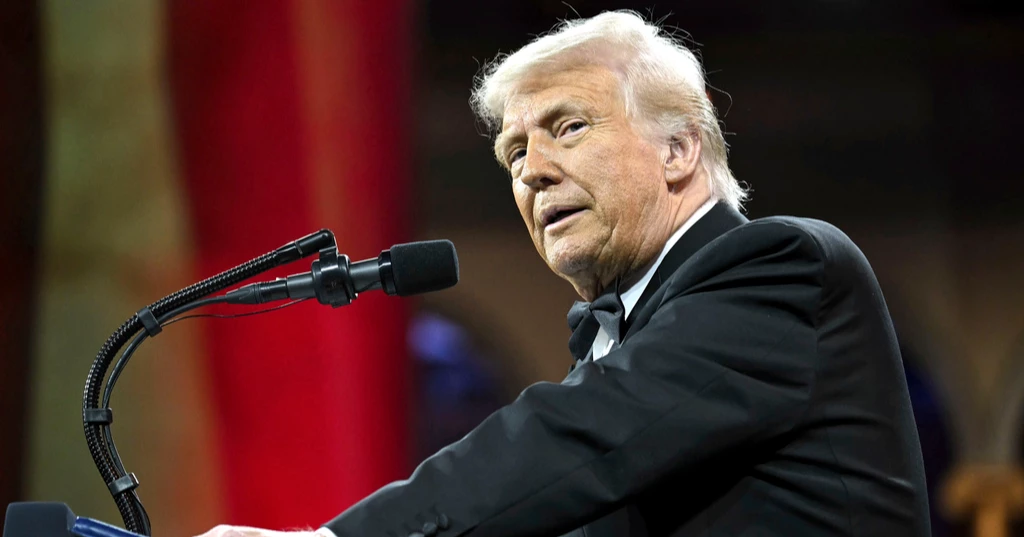As President Donald Trump ramps up his trade war with China, he is also straining ties with traditional U.S. allies who might have otherwise bolstered America’s position in the standoff between the world’s two largest economies, reports UNB-AP.
For years, American policymakers—including Trump—have sought to shift U.S. economic and strategic focus toward countering China’s growing global influence. However, nearly three months into his second term, Trump’s “America First” tariffs and budget reductions may be creating a major opening for Beijing to sidestep U.S. pressure.
This week, Trump intensified his trade offensive by raising tariffs on Chinese imports to an extraordinary 145%. At the same time, he temporarily halted tariffs on other nations’ goods for 90 days following a sharp downturn in the stock market. Still, the back-and-forth approach has disrupted global trade and damaged Washington’s relations with long-standing partners.
While Trump promotes a protectionist agenda, China is broadcasting a contrasting message: it promises wider market access and positions itself as a source of global economic stability.
Beijing, now directly targeted by Trump’s tariff strategy, is maneuvering to benefit from the geopolitical shift, seizing opportunities created by U.S. isolationism to expand its influence and strengthen ties with other global players.
“The world must embrace fairness and reject hegemonism,” China has stated—an implicit criticism of U.S. trade policy. In recent months, Chinese leaders have engaged with their counterparts from the EU, South Korea, Japan, and other nations, appealing for unity among countries hit by U.S. tariffs.
China reiterated its commitment to global engagement, stating: “As the world’s second-largest economy and a major consumer market, China remains committed to further opening, regardless of global uncertainties.”
U.S. Tariff Policy Sparks Global Reaction
Trump’s aggressive tariff campaign follows his withdrawal from international institutions such as the World Health Organization and the dismantling of U.S. agencies like USAID and the U.S. Agency for Global Media. These moves have fueled concerns that Washington is surrendering influence to Beijing.
Rep. Raja Krishnamoorthi, the top Democrat on the House Select Committee on the Chinese Communist Party, criticized the approach: “Rather than reinforcing alliances to counter China, the Trump administration is turning its back on the partnerships that have underpinned U.S. strength and security for decades.”
Trump’s selective tariff pause—excluding China—highlights the administration’s desire to isolate Beijing. But White House press secretary Karoline Leavitt defended the policy, claiming, “Rather than drifting toward China, countries are reaching out to the United States because they rely on our markets.”
Commerce Secretary Howard Lutnick confirmed that building international coalitions is not part of Trump’s strategy. “The president is focused on securing the best deals for America individually,” he said.
Beijing Eyes Strategic Gains
Despite the turbulence, Beijing hasn’t yet fully capitalized on the opening, according to Josh Lipsky of the Atlantic Council’s GeoEconomics Center. He noted that both the U.S. and China are so entrenched in their trade conflict that other countries have become secondary considerations. China’s persistent overcapacity in manufacturing may also limit its ability to forge new economic alliances.
Gabriel Wildau of Teneo noted that Trump’s partial tariff suspension appears aimed at further isolating China, making it harder for Beijing to rally a broad global coalition against U.S. trade actions.
On Capitol Hill, House Democrats expressed concern that Trump’s tariffs have pushed important Asia-Pacific partners—including Japan, South Korea, Australia, and Vietnam—closer to China.
“We’ve started trade disputes with every one of our partners in the Asia-Pacific,” said Rep. Adam Smith of Washington. Rep. Joe Courtney of Connecticut added, “This is steering our allies away from us.”
But not everyone agreed. Rep. Trent Kelly of Mississippi defended the tariffs, saying, “Letting others take advantage of us doesn’t make us strong leaders.”
Shortly after Trump announced his new round of “reciprocal” tariffs on April 2, Rep. Krishnamoorthi denounced the decision as “a total surrender of American global leadership that plays straight into China’s hands.”
China Strengthens Global Ties Amid U.S. Trade Disruption
Amid intensifying trade tensions, Chinese Premier Li Qiang spoke by phone with European Commission President Ursula von der Leyen, reaffirming China’s desire to strengthen its relationship with the EU. Li described China and the EU as vital trading partners with deeply interconnected economies.
Von der Leyen acknowledged the need for Europe and China to support a more robust international trading system in light of U.S. disruptions. She also pressed for improved market access for European firms in China.
Meanwhile, Chinese Commerce Minister Wang Wentao, during a virtual meeting with Malaysia’s trade minister, emphasized Beijing’s readiness to work with trading partners to protect multilateral trade rules. Malaysia currently chairs ASEAN, the 10-member Southeast Asian bloc.
ASEAN’s economic ministers, in a joint statement, voiced concern over U.S. unilateral tariffs, warning of negative impacts on small businesses and overall trade flows.E
Earlier in March, China’s trade officials met with their counterparts from Japan and South Korea, issuing a joint statement calling for greater cooperation on supply chain resilience. However, they stopped short of addressing a unified response to U.S. tariffs—highlighting the challenges of forming a regional consensus.


